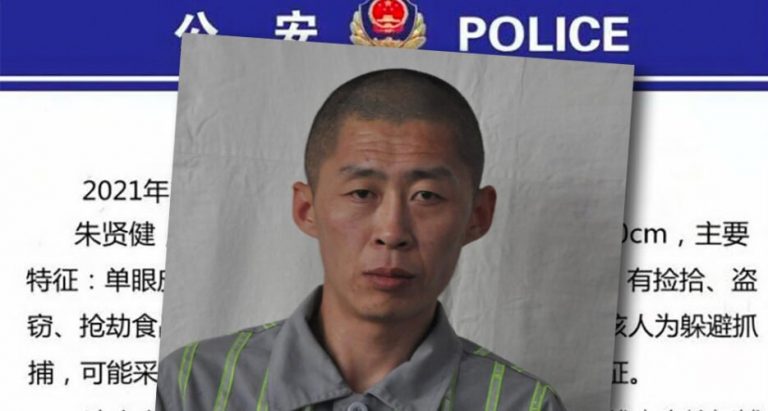A North Korean convict using the name of Zhu Xianjian was recaptured on Nov. 28, according to Chinese authorities. A statement released by municipal police in Jilin stated that the fugitive was captured near Songhua Lake around 10 a.m. and sent back to prison.
The 39-year-old man, whose Korean name is Ju Hyon Gon, had escaped from a prison in Jilin, the second largest city in the province of the same name, in the evening of Oct. 19.
Zhu was initially arrested in 2013 after crossing a river from North Korea into China and reportedly stealing money, mobile phones and clothes from a nearby village before stabbing a woman. He then tried to flee in a taxi before being captured and sentenced to prison in Jilin.
Prior to his escape, he was set for release in 2023, after which he would likely have been deported back to North Korea to face unknown punishment.
The escape triggered a manhunt for Zhu that generated wide interest across social media. Chinese authorities offered a reward of 700,000 yuan (approximately USD $109,000) in an effort to encourage residents to contribute information leading to Zhu’s arrest.
State-run media Beijing News released footage of Zhu on the night of his escape showing him climbing a prison shed and scaling its rooftop before vaulting over an electric fence to freedom.
The video also showed prison guards attempting to chase after Zhu.
Success
You are now signed up for our newsletter
Success
Check your email to complete sign up
Numerous Chinese media outlets posted videos and reports showing Zhu being carried away from a small boat while shouting in pain after reportedly being shot in the leg by pursuing police. It was also reported that he was hiding in the basement of an abandoned building prior to being captured.
While Zhu was convicted of violent crimes, many North Koreans who escape their country do so out of desperation, given the totalitarian regime’s tight control and rampant food shortages. Despite neighboring Northeast China being one of China’s less economically successful regions, it presents many opportunities for North Koreans to thrive.
The Chinese government forcibly repatriates North Koreans despite being a part of the 1951 U.N. Convention on Refugees, which obligates signatories not to return refugees if it places them at risk of persecution or torture.
However, China sees defectors as illegal migrants rather than refugees, allowing them to be dealt with as criminals in the country’s legal system. In many cases, North Korean refugees, usually women, married to Chinese citizens have been separated from their families and sent back to the homeland, where they can be severely punished or executed.
North Koreans are not allowed to travel freely within the country without special permission from the regime, let alone exit its tightly patrolled borders. However, every year, thousands of refugees risk their lives crossing the land borders into China or South Korea in an attempt to seek asylum.
Some also try to escape via the ocean into Japan, which also accepts North Korean refugees. However, because it is nearly impossible to acquire a boat in the authoritarian country due to most goods being state property, many end up drowning when they attempt the perilous journey on makeshift life-rafts without adequate supplies of water and food.














